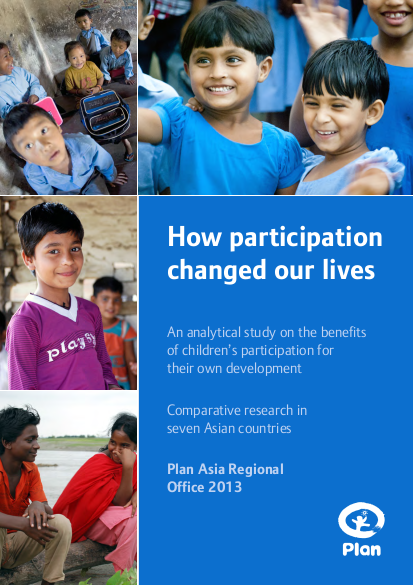An analytical study on the benefits of children’s participation for their own development - Comparative research in seven Asian countries

The history of children’s participation within non-governmental organisations (NGOs) is barely 40 years old and still requires greater understanding and agreement between agencies about the definition of participation, as well as criteria for evaluation. Thus, this Report is not an evaluation of Plan participation activities in Asia. Indeed a classic evaluation would not have been possible because no baseline data were available at this point. The process of data collection and analysis for the Report is best described as “systematic curiosity” (Liebel, 2008).
In a relatively new approach, the Report systematically explores the outcomes of participation projects from children’s points of view, within an overall perspective in which rights are combined with considering children’s development through their evolving capacities. The key question is the extent to which children view participation activities as beneficial for their personal growth and development.
Research took place in seven Asian countries, Cambodia, Nepal, Pakistan, Sri Lanka, Thailand, Timor-Leste and Vietnam,